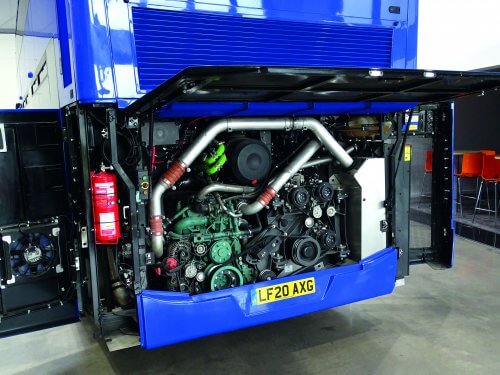
Responding to a Government consultation on phasing out new diesel buses, Confederation of Passenger Transport (CPT) has highlighted that zero-emission buses alone cannot deliver net zero emissions. Instead, it says there needs to be a change in people’s travel behaviour so that more people choose to travel by bus.
If everyone took one more bus journey a month the benefits to the UK would be huge, the CPT highlights. It believes there would be a billion fewer car journeys and we would reduce the UK’s carbon dioxide emissions by 2 million tonnes a year, and key to encouraging more people to take the bus must be journey time improvements brought about by bus priority measures such as bus lanes, traffic signalling and priority at junctions.
Figures show that before the pandemic 25% of car users said they would consider switching to buses if they were more reliable. As lockdown restrictions continue to be lifted, CPT says that it is vital that bus priority measures are put in place to avoid a car-based recovery and a return to congested roads in towns and cities.
CPT’s Head of Policy Alison Edwards said: “It is vital that Government realises that phasing out new diesel buses alone is not enough to reach net zero emissions, and that what we really need is people to change their travel behaviours. If everyone took just six more journeys a year by bus that would have an impact equal to the transition of the entire bus fleet to zero emission.
“We need Government to focus on putting buses at the heart of transport planning, with priority measures that keep buses out of traffic. This will result in quicker, more reliable journey times that make bus an appealing travel option.”
CPT’s response also highlighted that ending the sale of new diesel buses without adequate financial support from Government will result in cost increases for operators which risks impacting bus services and undermining the Government’s ambitions, which the industry shares, for modal shift, net zero emissions and the levelling up agenda.
Alison continued: “The costs of investing in zero-emission buses are significant. Desires to create a zero-emission bus fleet must come with financial support from Government to avoid diverting important investment from improving bus services for passengers as envisaged by the National Bus Strategy.”

